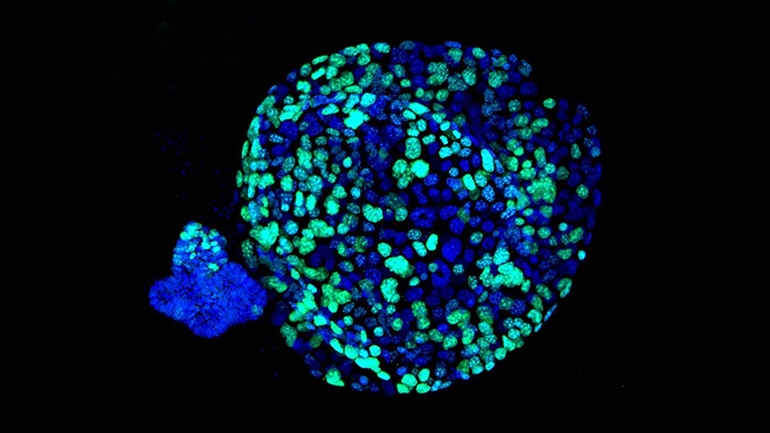This Ready Challenge recipient aims to remove systemic barriers in Medical Testing
Cold Spring Harbor Laboratory (CSHL) has made it a mission to resolve some of the most difficult challenges in scientific research with cutting-edge solutions for 130 years.
Scientists at this New York organization have been studying pancreatic cancer for many years. During their research, disturbing data emerged showing the disparity in higher diagnosis and death rates for Blacks in comparison to other groups. The scientists set out to find out why.
A major reason for this disparity appeared to be the lack of diversity in overall research and testing for treatments. The scientists felt it was critical to expand participant groups to include more diverse groups and women to understand genetic causes for not only pancreatic cancer, but other types of cancers as well.
White patients comprise the bulk of drug trial subjects, so it’s no surprise that different treatments would lead to different outcomes in others, said Dennis Plenker, a lead scientist at CSHL.
The CSHL team, led by Dr. David Tuveson, have developed a breakthrough technology for expanding testing capabilities to a more diverse population.

Picture of Organoid - 3D cell models grown in a dish to replicate human organs
This technology involves Organoids - 3D cell models grown in a dish to replicate human organs, such as the pancreas, breast or prostate. With organoids, you can test potential drugs to see which ones work best for a specific group or individual patient.
CSHL receives samples from patients with many types of cancers. Using these samples, the scientists can grow organoids and test drugs that are specific to the patient who provided the sample.
In early research, the scientists have tested different treatments on the organoids to see how each patient's cells respond. They hope the first clinical trials will show that it is effective.
“(You) can predict which patient should actually receive each of the chemotherapies, so you're not wasting time with an ineffective chemotherapy," Dennis said. “We have very good preliminary data."
CSHL has recently established a dedicated facility to help develop affordable clinical tests using organoids. It has partnered with hospital and medical institutions serving underserved populations to ensure widespread access to advanced cancer testing.
Focus on inequities in health care makes CSHL’s groundbreaking work more critical
TD Bank last year awarded CHSL a $750,000 TD Ready Challenge grant to help with this innovative work.
"We are proud to support the groundbreaking work being done at Cold Spring Harbor Laboratory to expand access to advanced cancer testing to underserved communities and low-income populations who have a higher incidence of cancer and lower survival rate than their White and higher-income counterparts," said Shelley Sylva, U.S. Head of Social Impact, TD Bank. "As communities and local leaders begin to acknowledge the impact race has on a person's health outcome, there's never been a more critical time for this type of work. Racism is a public health crisis and we're committed to continuing to support organizations that are addressing it head on."
The TD Ready Challenge grants for Better Health supports programs that focus on preventive care and help increase equal access to health care, no matter a person's zip code or economic status.
These grants are a key part of the bank’s corporate citizenship program, the TD Ready Commitment. This program allows the bank to play an active role in improving society in areas where it can have the greatest impact.
“There are inequities in access and delivery of diagnostics and medicine all over the place already," Dennis said. “COVID just reflects what's already happening out there. You had these healthcare inequities already and it’s been highlighted with COVID who has better access to healthcare, who can afford to stay at home."
Despite the challenges, Dennis remains optimistic that the information gained from CSHL’s project will have positive impacts.
“There are a lot of opportunities and there will be many advances in the next five years from research. With TD Bank’s support we can really address the questions that a lot of people have never dared to ask” he said.
